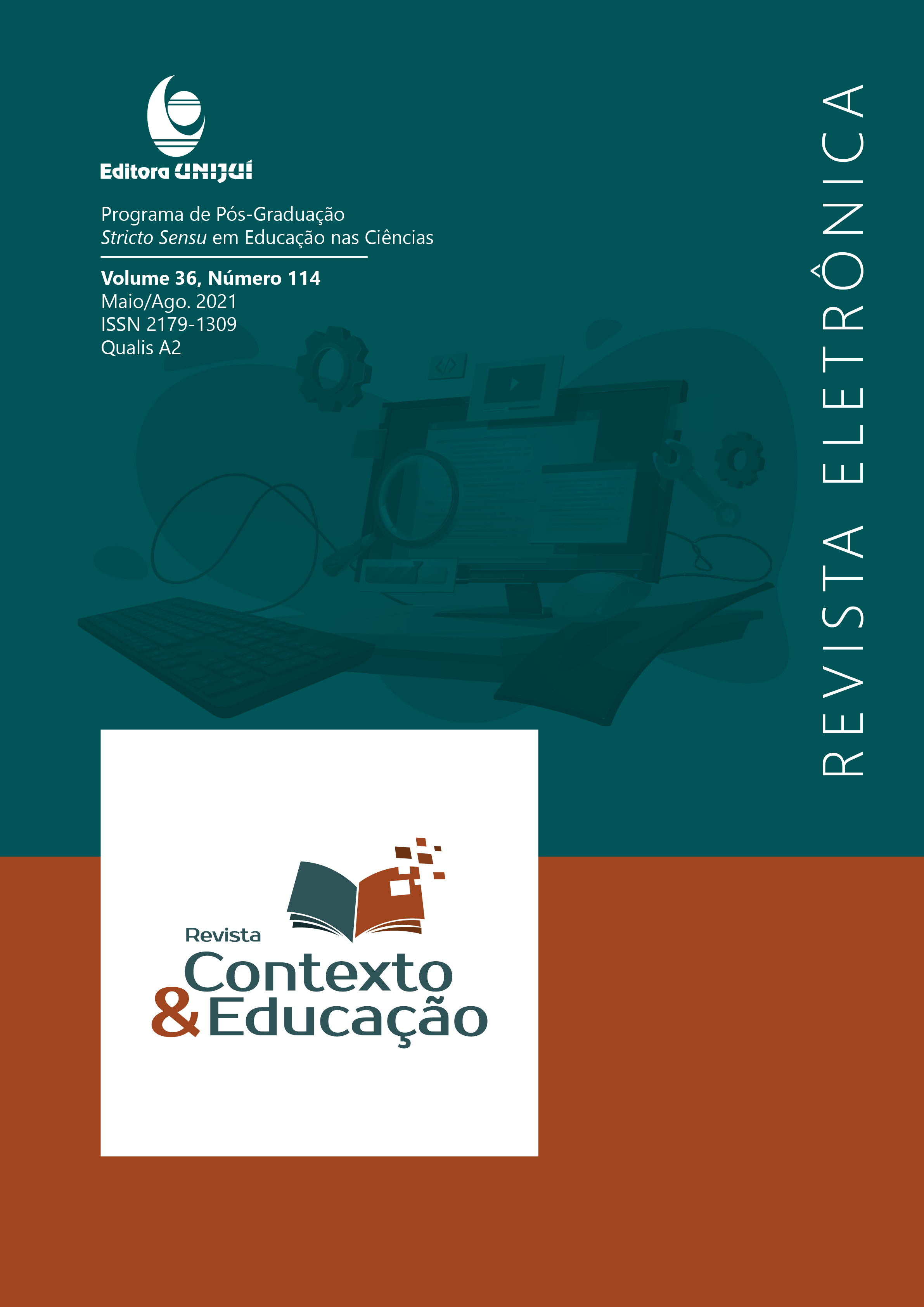PENSAMENTO CRÍTICO NA CIÊNCIA: PERSPECTIVA DOS LIVROS DIDÁTICOS BRASILEIROS
CRITICAL THINKING IN SCIENCE: PERSPECTIVE FROM BRAZILIAN TEXTBOOKS
DOI:
https://doi.org/10.21527/2179-1309.2021.114.404-419Palavras-chave:
Ensino de Ciências, Currículo, Estratégias de EnsinoResumo
A educação em Ciências precisa subsidiar os sujeitos contemporâneos com uma formação que não priorize somente os conhecimentos científicos, mas também o desenvolvimento de competências para que atuem em sociedade. Nesse contexto, considera-se a promoção do Pensamento Crítico (PC) como uma abordagem em potencial. Pensando nisso, realizou-se uma análise documental em 8 Livros Didáticos (LD) do 7º ano do Ensino Fundamental, identificando a natureza das atividades propostas, bem como o potencial das mesmas para o desenvolvimento das capacidades do PC. Percebe-se, com a análise a diversidade de atividades presentes nos LD de Ciências, sendo que as mais recorrentes foram classificadas na categoria Exploratórias, as quais conferem a oportunidade do sujeito se envolver no processo, a depender do encaminhamento pedagógico. Observa-se também, a presença de atividades classificadas como Reflexivas/Críticas, as quais desempenham um papel crucial na formação do sujeito, instigando-o a pensar, refletir e criticar. Verifica-se ainda, a presença de atividades mais tradicionais classificadas na categoria Informativas, pois apenas têm o intuito de apresentar uma informação adicional ao conteúdo. Contudo, considera-se os resultados satisfatórios, pois expressam que os LD de Ciências, não possuem predominantemente atividades simplistas e tradicionais, mas que tem avançado em relação ao caráter das atividades propostas.
Downloads
Publicado
Como Citar
Edição
Seção
Licença
Ao publicar na Revista Contexto & Educação, os autores concordam com os seguintes termos:
Os trabalhos seguem a licença Creative Commons Atribuição 4.0 Internacional (CC BY 4.0), que permite:
Compartilhar — copiar e redistribuir o material em qualquer meio ou formato;
Adaptar — remixar, transformar e criar a partir do material para qualquer fim, inclusive comercial.
Essas permissões são irrevogáveis, desde que respeitados os seguintes termos:
Atribuição — os autores devem ser devidamente creditados, com link para a licença e indicação de eventuais alterações realizadas.
Sem restrições adicionais — não podem ser aplicadas condições legais ou tecnológicas que restrinjam o uso permitido pela licença.
Avisos:
A licença não se aplica a elementos em domínio público ou cobertos por exceções legais.
A licença não garante todos os direitos necessários para usos específicos (ex.: direitos de imagem, privacidade ou morais).
A revista não se responsabiliza pelas opiniões expressas nos artigos, que são de exclusiva responsabilidade dos autores. O Editor, com o apoio do Comitê Editorial, reserva-se o direito de sugerir ou solicitar modificações quando necessário.
Somente serão aceitos artigos científicos originais, com resultados de pesquisas de interesse que não tenham sido publicados nem submetidos simultaneamente a outro periódico com o mesmo objetivo.
A menção a marcas comerciais ou produtos específicos destina-se apenas à identificação, sem qualquer vínculo promocional por parte dos autores ou da revista.
Contrato de Licença (para artigos publicados a partir de outubro/2025): Os autores mantém os direitos autorais sobre seu artigo, e concedem a Revista Contexto & Educação o direito de primeira publicação.


